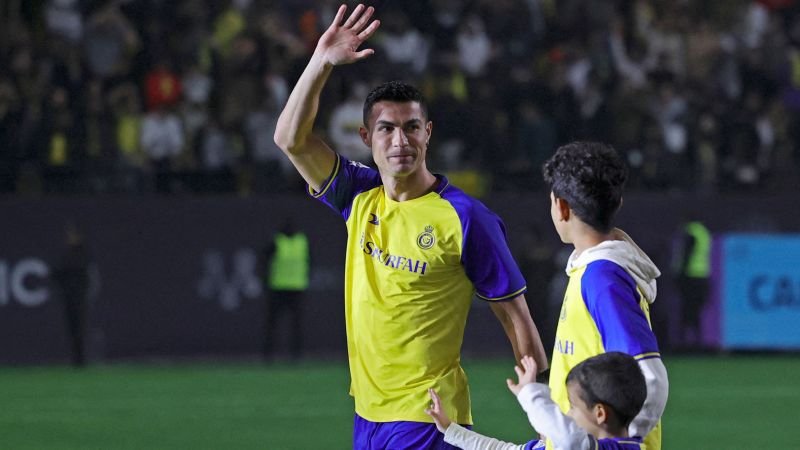The recent acquisition of Cristiano Ronaldo by the Saudi Arabian football club Al Nassr FC has sent shockwaves through the sports world and beyond. The five-time Ballon d’Or winner’s move to the Gulf monarchy has been met with both excitement and criticism, with many hailing it as a historic moment while others decry it as “sportswashing,” an attempt to improve the country’s tarnished image through sports.
Ronaldo’s arrival in Riyadh was met with great fanfare, with children sporting the club’s colors and social media buzzing with excitement. The superstar is set to earn a staggering $200 million a year with Al Nassr, making him the highest-paid footballer in the world. This move is seen as part of Saudi Arabia’s broader efforts to diversify its revenue sources and establish itself as a major player in the international sporting scene.
However, critics point out that the kingdom’s investment in sports, including the acquisition of prestigious clubs and high-profile athletes, is an attempt to distract from its human rights record and the controversies surrounding its government. The 2018 murder of journalist Jamal Khashoggi and the ongoing war in Yemen have brought negative attention to Saudi Arabia, and the sports investments are seen as a way to improve its global image.
Saudi Arabia is not alone in its pursuit of sports diplomacy. Neighboring countries like Qatar and the UAE have also invested heavily in sports and entertainment as a means of soft power projection and economic diversification. The competition among Gulf nations to host major sporting events and attract international talent reflects a broader trend in the region.
The acquisition of Ronaldo, along with other high-profile moves in the sports world, is part of Saudi Arabia’s economic restructuring efforts. The country is seeking to reduce its reliance on oil income and establish new industries, including sports and entertainment. Ronaldo’s partnership with Al Nassr is backed by the country’s wealth fund, signaling a strategic investment in the club’s commercial success.
The kingdom’s bid for the 2030 World Cup, along with its recent hosting of various sporting events, is further evidence of its ambitions to become a major player in the global sports landscape. The commercial potential of Ronaldo’s collaboration with Al Nassr is significant, as it could attract more international talent and boost the club’s commercial performance.
Critics of Saudi Arabia’s sports investments argue that they are meant to distract from the country’s human rights abuses and political controversies. However, supporters see them as part of a wider strategy to boost the country’s economy, promote social change, and engage with the international community. Despite the criticisms, Saudi Arabia’s sports investments are likely to continue as the kingdom strives to establish itself as a legitimate member of the global football community.
In conclusion, Cristiano Ronaldo’s move to Saudi Arabia is not just a sporting milestone, but also a reflection of the kingdom’s wider ambitions in the global sports industry. The acquisition of high-profile athletes and investments in prestigious clubs are part of Saudi Arabia’s broader strategy to diversify its economy, improve its image, and establish itself as a major player in the international sporting scene. While the move has been met with controversy, it highlights the growing intersection of sports, geopolitics, and economics in the Middle East and beyond.

